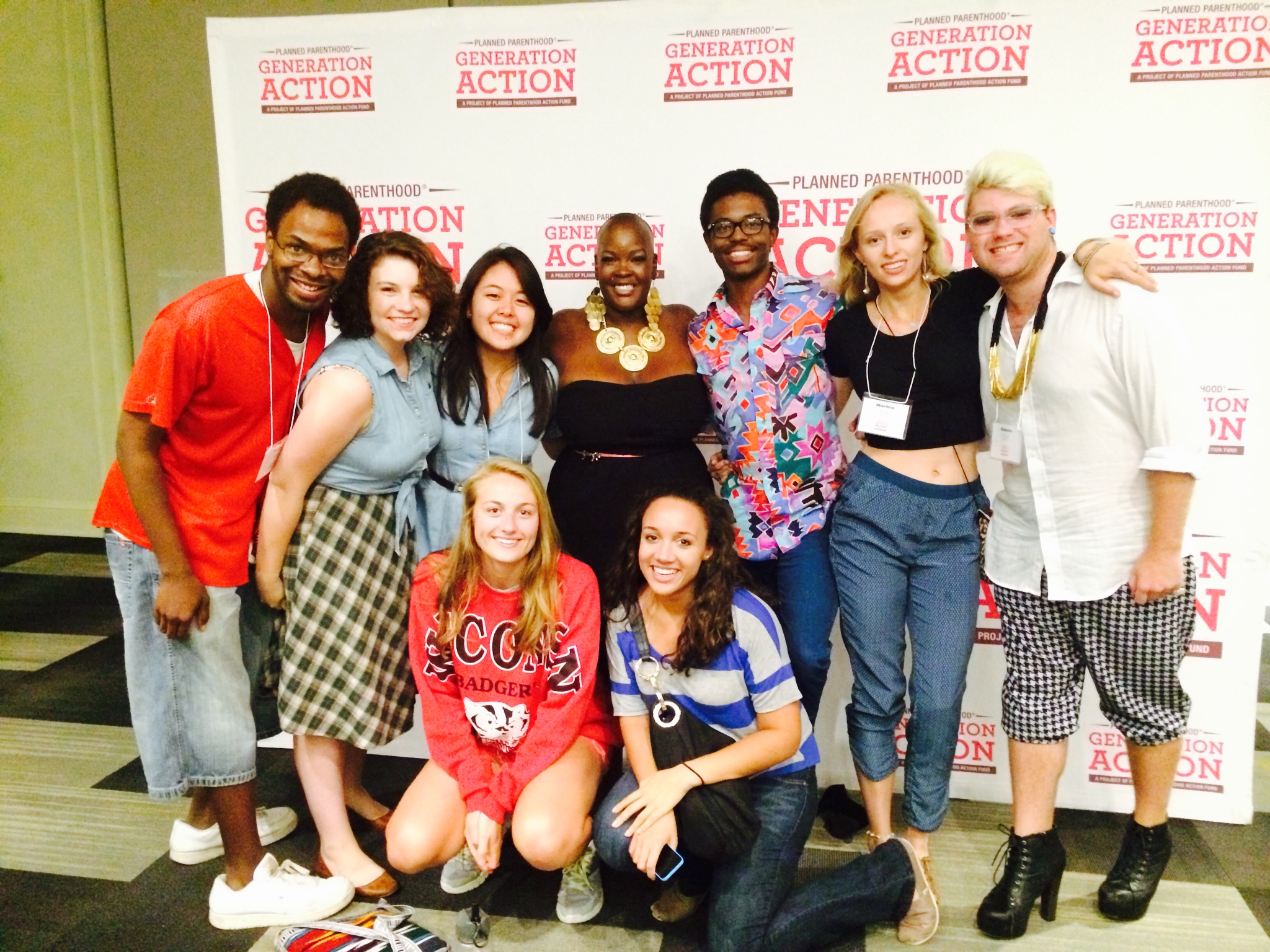Last month, I was lucky enough to attend the Planned Parenthood Generation Action Power Tour conference in Nashville, Tennessee. The conference, which was open to reproductive justice-minded college students, was the second stop on the 2014 Power Tour and drew nearly 200 students. I attended with a group of students from my own university, University of North Carolina-Chapel Hill, but Feminist Majority Foundation’s campus communications associate was there, too! Shoutout to Taylor!
The posted community rules set by students, interns, and leaders were as follows:
- Assume best intentions
- Use inclusive language
- Speak from your own experience with “I” statements
- One mic, one “diva”
- Give proper respect to others
- Be punctual!
And then we were off!

The institute was jam packed with an abundance of lectures, breakout sessions both short and long, games and compelling conversations. I’m most fond of the memories I made and discussion that was had with my UNC cohort that lasted well into the very wee hours of the morning. The topic: socialist theory and its connection/relevance to the reproductive justice movement.
As I reflect on the conference, I wish I had appreciated more the moments for learning and personal growth that may not have been as clear and transparent. Obviously, a great amount of knowledge was available within the space, but it was almost always overwhelming to a “slower” thinker, like myself.
On the first day of the conference, Cherisse Scott of Sister Reach, an organization set to self-empower women and girls in Memphis by providing a framework for the reproductive justice movement, gave a primer on the movement: what it is and all that it encompasses. This was, in my opinion, the most informative and thought-provoking session of the conference. She discussed how the RJ framework applied to college-aged students and, most importantly, those who were first and second-generation attendees. She also mentioned how the RJ framework was applicable to youth traumatized by crime and institutionalized family members in cities such as Detroit, Chicago, and Memphis, in a system that is widely and disproportionately unjust toward people of color, specifically black Americans. She cited statistics such as incarceration rates of black men and women to show evidence of displacement and erasure of people of color that is still occurring in our country, with similarities to the Jim Crow South.
A little about the reproductive justice movement: For the past two decades, leaders have brought forward and have shared the RJ framework with student activists, building diverse coalitions with progressive groups and local university chapters. The reproductive justice movement has since gained momentum and has grown in capacity since its inception in 1994 at a black women’s caucus.
The three pillars of the RJ movement include an individual’s right to have children, to not have children, and to parent the children they have in safe and healthy environments. My personal calling has been to learn as much as I could about the third point because of its implications and subtle intersections. I would have never realized this calling without first obtaining knowledge about how to care for children in a variety of contexts, then also being critical about this knowledge. If I could add a community rule to the canon listed above, I would add ‘always be skeptical’ because it’s critical to a movement of radical change that we are!
I would encourage anyone with an opportunity to attend a Generation Action event (find yours here!) to do so and to come prepared to learn. Think of yourself as a sponge, but instead of collecting dirty dishwater, I challenge you to collect your thoughts about the RJ movement and how it has allowed feminism to increase its intersectionality.

